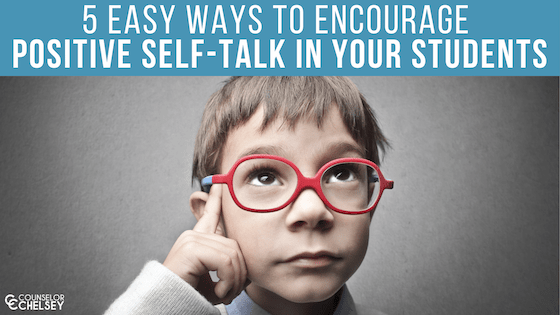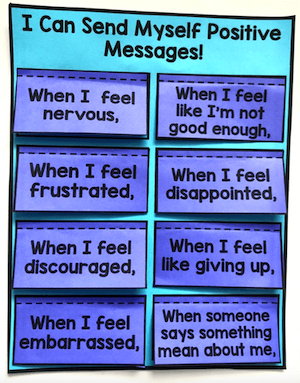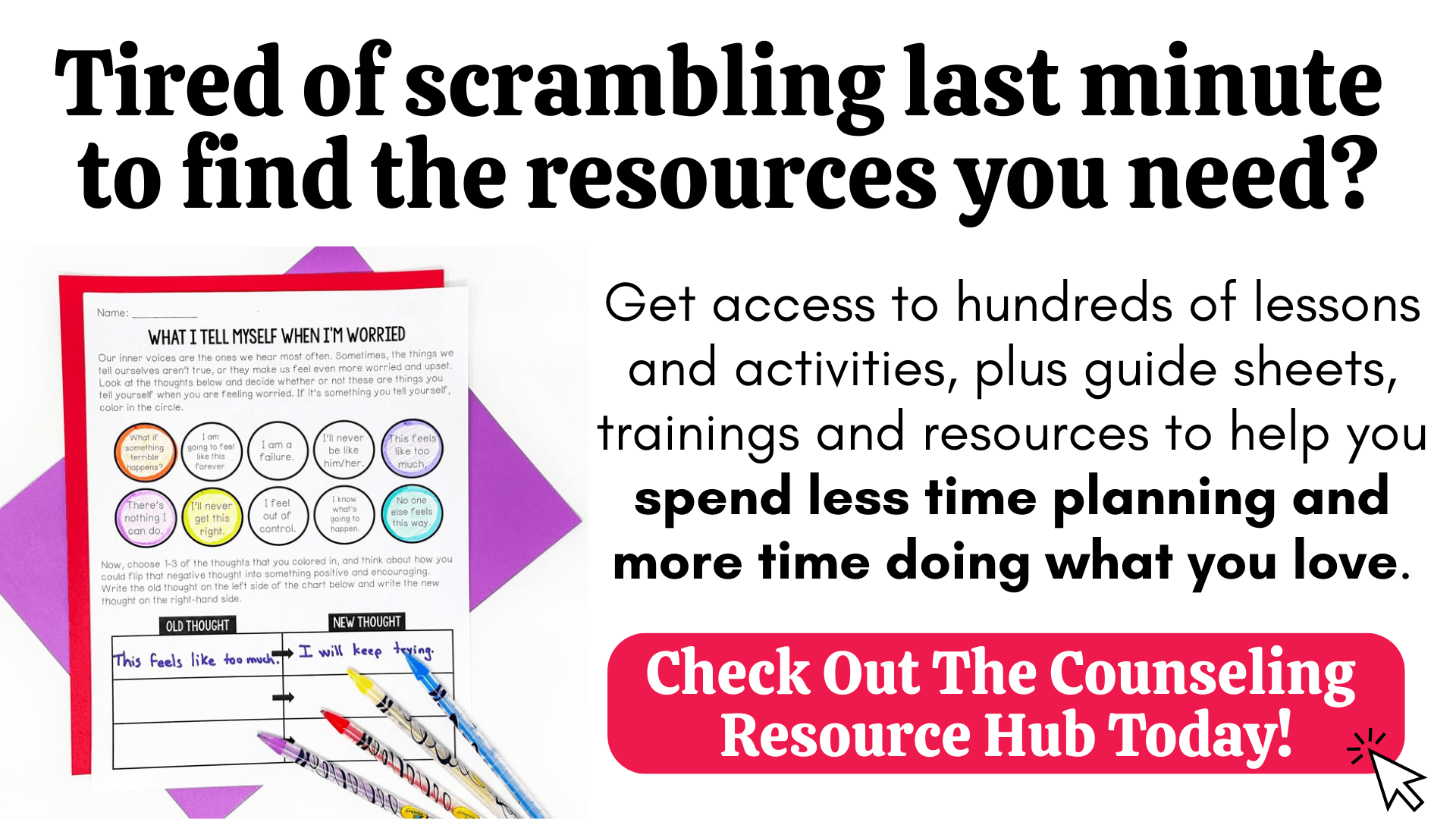5 Easy Ways To Encourage Positive Self-Talk In Your Students
“I’ll never be able to do this.” “I hate the way I look.” “I wish I was as smart as her.”
Listening to kids say and believe these things about themselves is so disheartening. From the outside, it’s so easy for us to see the beauty and potential that kids possess. Yet sometimes it can be hard for kids to see it themselves.
But, what do we do about it? How can we help kids change their inner voices and begin to believe in their worth and ability?
These 5 positive self talk activities for school counseling will give you practical ideas of how to encourage students to be more kind to themselves.
Why Does It Matter?
“Positive self-talk” has become a bit of a buzzword in the social-emotional learning world. But, does it really matter? Should we really be talking to our students about it?
The answer is yes.
We’d be furious if we heard someone tell a precious child they weren’t good enough or that they couldn’t achieve their goals. Yet, the reality is that many of our students hear these things all the time - from themselves.
The impact of that can be detrimental. When kids are constantly bombarded with negative thoughts about themselves, they begin to believe those things are true. This can lead to anger, frustration, hopelessness and more.
Thankfully, there’s something that can be done. Research shows that replacing these thoughts with positive self-talk can lead to improved physical health, lower depression rates, and a lower stress level.
Teaching about positive self-talk doesn’t have to be complicated. These easy positive self-talk activities for school counseling will give you practical ideas of how to help your students learn to encourage and believe in themselves.
1. Let Your Office Decor Work For You
I still remember a poster from my 7th grade science room. It went along the lines of “In 30 years, it won’t matter what you’ll wear - it’ll matter how you treat people.” After all these years, I still remember that.
The decor we put in our room can make a difference.
Use this to your advantage and include materials in your counseling office that encourage positive self-talk. Grab some inspirational self-talk posters, take photos of students holding up their own positive affirmations and hang them in the room, etc.
Not sure where to start? I have some free affirmation cards you can use! They’re perfect to put on a mirror in your office, or on a bulletin board! To grab them, sign up using the form below.
2. Make it personal
In order for students to use positive self-talk, they need to know what it is and how it can help them. Creating a stack of positive affirmation cards during your counseling lessons can be a great way to get students thinking about positive affirmations that are unique to them. This activity also gives students something to take home.
This is a simple activity - all you need is notecards and coloring or drawing utensils. Instruct students to consider positive mantras they can use, and to write one on each card. When students are finished, they can put a hole punch in the corner of each card and put them on a ring. Another option is to encourage students to put the cards where they will see them every day, like their locker, bathroom, or backpack.
I love using this activity with students who are artistic and enjoy decorating their cards. This exercise also allows students to take ownership over their positive self-talk journey.
3. Teach students to flip their Thoughts
Positive self-talk is of course a helpful skill. However, for it really to be effective, students must learn to use it as a replacement to their negative self-talk.
To start this process, students must identify which negative thoughts, or negative self-talk, they’re experiencing. Then, they need to come up with specific ways to replace that negative thinking into something more positive.
One way to do this is to use a white board, and write negative thoughts on it. Then, have students erase each negative thought and replace it with a corresponding positive thought. You can offer your own examples of negative self-talk, or let students come up with their own!
Giving students practice with these scenarios will help them know what to do when their negative self-talk creeps in.
4. Practice positive self-talk in different situations
Positive self-talk is a skill that’s helpful for SO many situations. It’s something that can be used when we feel anxious, discouraged, frustrated, and even excited. Using your counseling lessons to teach about different opportunities to use positive self-talk can unleash so many opportunities for self-regulation.
This lift-a-flap page can be found in my positive self-talk activities!
This positive self-talk activity can be done through role plays, discussions, or even crafts. Help your students come up with situations where they might be tempted to use negative self-talk. Then, ask them to come up with positive thoughts or affirmations that they could have instead. Using puppets for this can help students role play through the different situations.
If you’re busy, don’t worry, I have done all of the work for you! I have a set of several positive self-talk activities that will help students establish positive self talk mantras they can use in a variety of scenarios.
Walking through different situations they will face in real life, and practicing addressing them with positive self-talk, is such an important way to give students the reps they need to feel confident using positive self-talk in any scenario.
5. End your counseling lessons With Positive Self-Talk
Practice makes perfect. The more we practice, the easier and more natural something becomes. Positive self-talk is no exception.
One way to encourage students to develop positive self-talk is to allow them to practice using it at the end of your school counseling lessons. Next time you’re at the end of a lesson, encourage your students to answer two questions.
What did you do best in our lesson today?
How did you make our time together better?
By answering these questions, your students will practice focusing on their own strengths and abilities. They will be training their brains to think positively about themselves and what they have to offer.
These 5 positive self-talk activities for school counseling will give your students the tools they need to feel confident and prepared for anything they face. Use them to help your students begin to see the potential in themselves that everyone else can see.









